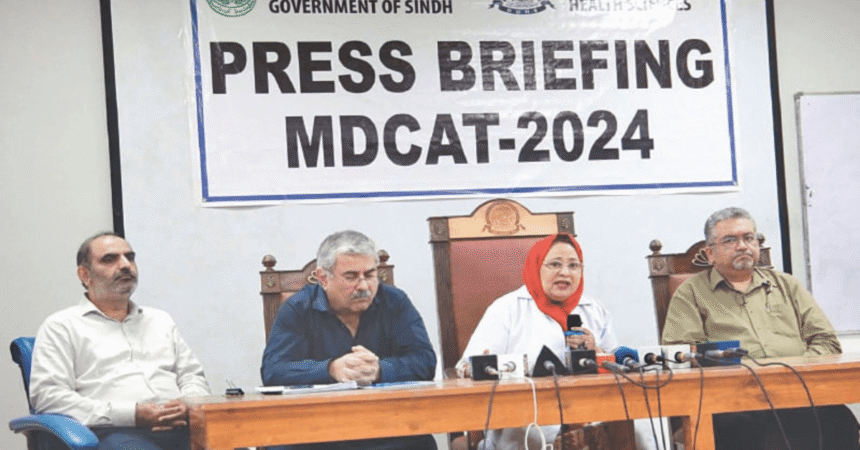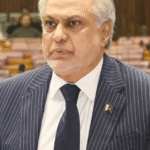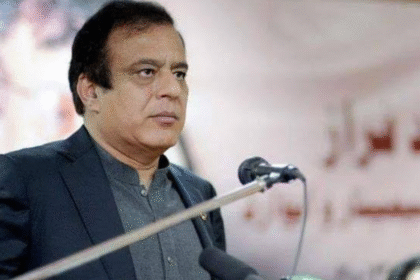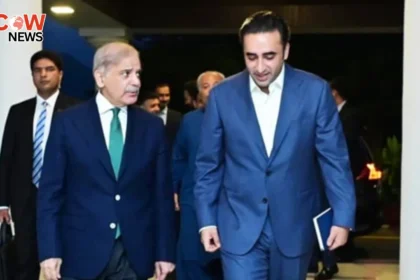Introduction
The Sindh Medical and Dental Colleges Admission Test (MDCAT) is a pivotal examination for aspiring medical and dental students across Pakistan, particularly in the Sindh province. As the test date approaches, authorities are ramping up efforts to ensure that the examination process is secure and free from any irregularities, including potential paper leaks. This article explores the extensive measures being taken to uphold the integrity of the MDCAT, the implications of these measures for candidates, and the broader context of medical education in Pakistan.
Background of MDCAT
The MDCAT serves as a crucial gateway for students seeking admission into medical and dental colleges. Administered annually, it tests candidates on various subjects, including biology, chemistry, physics, and English. The stakes are high, as performance in this examination significantly influences admissions into reputable medical institutions.
In Sindh, this year’s MDCAT will witness a total of 38,678 candidates, with 23,166 female students participating. This statistic not only underscores the growing interest among women in pursuing medical careers but also reflects broader social changes in educational aspirations within the region.
Importance of Integrity in Examination
Ensuring the integrity of the MDCAT is essential for several reasons:
- Fairness: A fair examination process ensures that all candidates have an equal opportunity to succeed based on merit rather than access to leaked materials.
- Public Trust: Maintaining the credibility of the examination fosters trust among students, parents, and educational institutions. Any perceived dishonesty can lead to long-term consequences for the reputation of medical education in the region.
- Quality of Medical Education: The quality of healthcare in Pakistan is directly linked to the competence of its medical professionals. Ensuring that only qualified candidates gain admission is crucial for the future of the healthcare system.
Measures Being Implemented
To safeguard the examination process, the authorities, led by the Dow University of Health Sciences (DUHS), have put in place a series of comprehensive measures aimed at preventing any potential leaks or cheating.
1. Enhanced Security Protocols
The security of examination materials is paramount. The DUHS has implemented several layers of security to protect the MDCAT papers:
- Restricted Access: Only authorized personnel are allowed to access examination materials. This measure limits the number of individuals who can potentially leak information.
- Surveillance Systems: Examination centers will be equipped with CCTV cameras to monitor activities during the test. This surveillance is intended to deter any attempts at cheating and ensure that the examination process is conducted smoothly.
2. Secure Exam Centers
The DUHS has designated multiple exam centers across Sindh to accommodate the large number of candidates. These centers have been chosen for their ability to maintain security and order during the examination. Key centers include:
- Karachi: Various venues throughout the city.
- Jamshoro: Liaquat University of Health Sciences.
- Shaheed Benazirabad: Bilawal Sports Complex.
- Sukkur: IBA Public School.
- Larkana: Police Training Centre.
3. Immediate Feedback Mechanisms
To further ensure transparency and trust in the examination process, answer keys will be uploaded to the Dow University website shortly after the exam concludes. This immediate availability allows candidates to assess their performance quickly and provides a layer of transparency that can help mitigate concerns over fairness.
4. Communication with Candidates
Clear communication with candidates is crucial in maintaining trust. The DUHS has taken steps to keep candidates informed about:
- Exam Schedules: Timely announcements regarding exam dates and venues.
- Preparation Guidelines: Information on the subjects covered and resources available for study.
- Security Measures: Transparency about the measures being implemented to protect the integrity of the exam.
5. Engaging Stakeholders
The authorities recognize the importance of engaging with all stakeholders in the examination process. This includes:
- Students and Parents: Regular updates and open channels of communication help to build trust and address any concerns.
- Educational Institutions: Collaboration with medical and dental colleges ensures that the examination meets the standards expected by educational institutions.
- Regulatory Bodies: Working with educational authorities to align on best practices for examination integrity.
Implications for Candidates
The measures being implemented carry significant implications for candidates preparing for the MDCAT:
1. Increased Confidence
With stringent security measures in place, candidates can approach the examination with greater confidence, knowing that efforts are being made to ensure a fair testing environment. This confidence can enhance performance and reduce anxiety.
2. Focus on Preparation
Candidates can focus on their studies rather than worrying about potential cheating or irregularities. This allows for a more productive preparation period and encourages students to engage deeply with the material.
3. Accountability and Meritocracy
The emphasis on integrity and fairness promotes a meritocratic environment where candidates are held accountable for their performance. This is essential for maintaining high standards in medical education.
Broader Context of Medical Education in Pakistan
1. Challenges in the Medical Sector
The medical education landscape in Pakistan faces several challenges, including:
- Limited Access: Access to quality medical education remains a concern, particularly in rural areas. Ensuring that talented candidates from all backgrounds can pursue medical careers is vital for the country’s healthcare system.
- Quality Assurance: The quality of education in medical colleges varies widely. Regulatory bodies must ensure that institutions meet specific standards to produce competent healthcare professionals.
- Healthcare Needs: As the population grows, the demand for qualified medical professionals increases. Addressing this need through a fair and transparent admissions process is essential.
2. Future Prospects
The proactive measures being taken for the MDCAT can serve as a model for other examinations in Pakistan. By prioritizing integrity, transparency, and accountability, the educational system can build a foundation for long-term improvements in medical education.
3. Role of Technology
The integration of technology into the examination process, including secure online platforms for information dissemination, can further enhance the transparency and efficiency of medical admissions. Embracing digital solutions can streamline operations and provide candidates with the resources they need to succeed.
Conclusion
The Sindh MDCAT represents a critical juncture for aspiring medical and dental students in Pakistan. The comprehensive measures being implemented to prevent paper leaks and ensure the integrity of the examination process are vital for fostering trust and accountability. As the test date approaches, candidates can prepare with the knowledge that their efforts will be evaluated fairly and transparently.
By prioritizing integrity in the MDCAT, the authorities are not only securing the future of individual candidates but also contributing to the overall improvement of medical education in Pakistan. As the country strives to meet its healthcare needs, these efforts will play a crucial role in shaping a competent and trustworthy healthcare workforce.
#SindhMDCAT #MedicalEducation #ExamIntegrity #DowUniversity #HealthcareProfessionals #PakistanEducation #StudentSuccess #FairExaminations #Transparency #FutureDoctors







